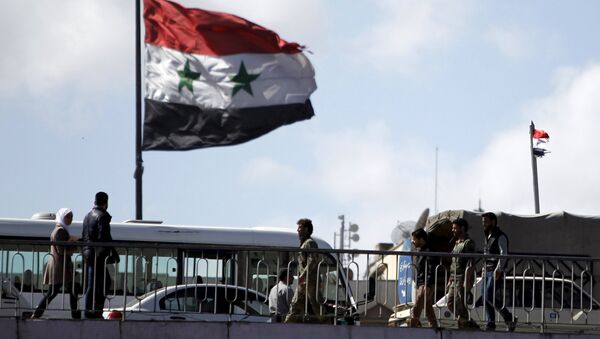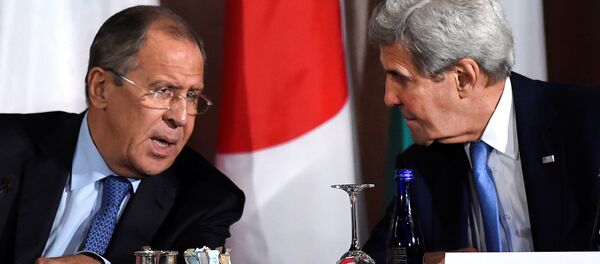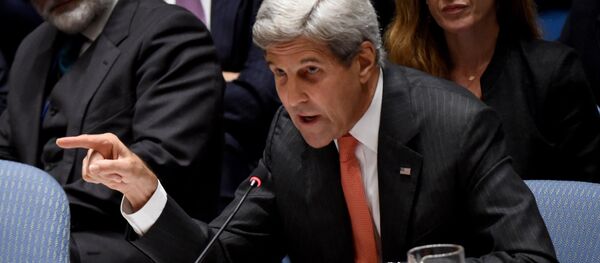Speaking to Sputnik Deutschland on the eve of the one year anniversary of the Russian intervention, Hofbauer recalled that before September 2015, "the only countries intervening in the conflict from the outside were those supporting Western policy."
In the meantime, peace talks, including those taking place in Vienna at the time, had effectively failed. "The US and John Kerry talked about peace more than anyone else, but they themselves de facto undermined it," Hofbauer suggested. "For example, Washington proposed the creation of a no-fly zone, which would factually mean that only the US and Saudi Arabia would be able to fly their planes over Syrian airspace."
Since then, Russia's intervention has led to significant progress in reaching its primary objectives – rooting out and destroying Daesh (ISIS) and other terrorists, and supporting the legitimate, UN-recognized government in Damascus.
Moscow and Washington were even able to agree to a comprehensive multi-stage ceasefire, Hofbauer noted. Unfortunately, after being in force for just a few days, the US-led coalition bombed the Syrian army in Deir ez-Zor, killing over 60 Syrian soldiers and injuring over a hundred others, he added.
It would be impossible to send a stronger message about making a decision to boycott the ceasefire, the journalist suggested. "It's quite transparent! And the fact that the Russian side was then accused of violating the ceasefire is just a cheap excuse," he added, referring to Washington's allegation that Russia and Syria were responsible for an attack on an aid convoy in Aleppo.
The US War on Terror, declared by former President George W. Bush in 2001, has since resulted in the deaths of over a million people. It's no wonder, the commentator suggested, that among the huge number of people who lost relatives and friends to these interventions there were also those who would be be prone to violence, including terrorism.
In this way, "the terrorism that we discuss in Europe or the United States, and which we say came from the Middle East, was actually imported into the Middle East from the United States," Hofbauer concluded.
Next week, a new German-language study entitled Middle East is Burning: Between the Syrian Civil War and World War comes out in Germany. The book includes a chapter by Hofbauer entitled "War Returns to the Centers," highlighting the fact that the war which has ravaged the Middle East now threatens to go global.




